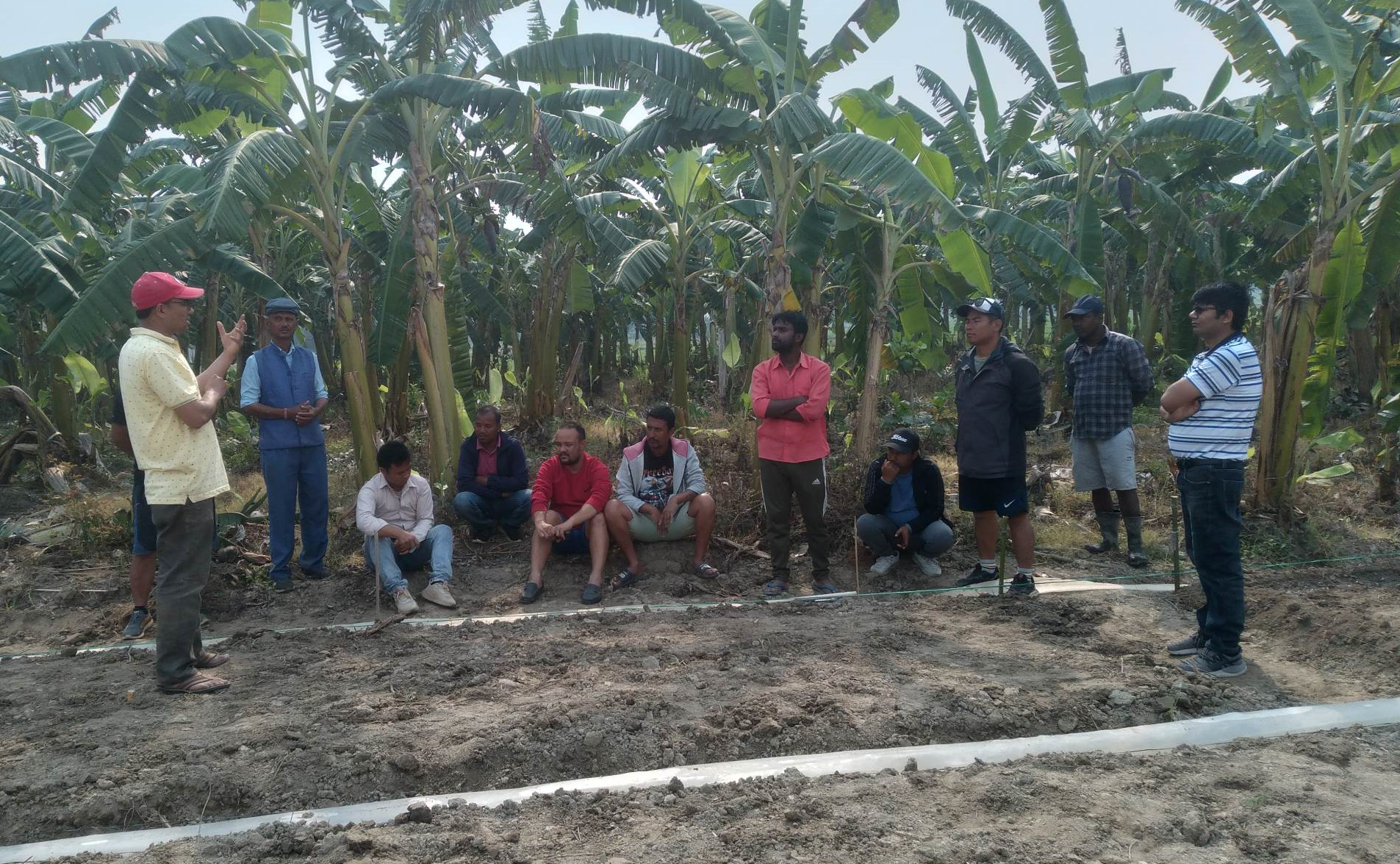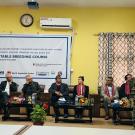
The persistent cultivation of vegetables on the same land in Nepal has intensified soilborne diseases, adversely affecting farm profitability and discouraging young individuals from pursuing vegetable cultivation. To address this challenge, this project aims to develop cost-effective, environmentally friendly techniques that can provide vital support to farmers in Nepal. These techniques will help alleviate multiple stresses in vegetable production, leading to increased yields and contributing to long-term food and nutritional security.
This project is led by Dr. Ram B. Khadka from the Nepal Agricultural Research Council, with Dr. Ranjana Rawal as a co-investigator. It involves collaboration with various institutions, including the National Research Centers of Pathology, Horticulture, Soil Science, Food, and Agricultural Policy, as well as partners such as Agriculture and Forestry University (AFU), Ohio State University, Tribhuvan University, and the Prime Minister Agricultural Modernization Project (PMAP).
Anaerobic soil disinfestation (ASD) will be combined in on-farm trials with native biocontrol isolates (Trichoderma and Bacillus) and grafting technology, to test their capacity to suppress soilborne pathogens and weeds in tomato and pepper production systems. Experiments will be conducted using a gender-balanced participatory action research (PAR) approach with fifteen mother-baby trials. Disease and weed suppression, yield, quality and soil health improvement, economic feasibility, and farmers’ perceptions of and willingness to adopt the new technologies will be assessed. Shifts in microbial community structure will be evaluated using high throughput sequencing technology.
The project will focus on developing economically viable and environmentally friendly disease and weed management methods, to boost the productivity and profitability of vegetable growers in Nepal, while concurrently gathering data on treatment impacts on soil health indicators and resilient rootstock for tomatoes and sweet peppers. On a systems level, research will produce insights into the success and failure factors of the new techniques, rank the problems associated with their adoption, and assess the socioeconomic feasibility and benefit-to-cost ratios of the technologies tested. The project will generate new pathogen reports, scientific publications, and technical fact sheets, as well as provide training for farmers, researchers, and diagnosticians, and engage in knowledge dissemination through meetings, conferences, and workshops with the scientific community and relevant stakeholders.
For more on this project, visit this site.


